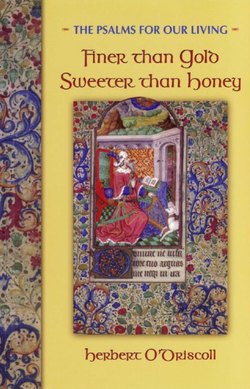Читать книгу The Psalms - Herbert O'Driscoll - Страница 11
На сайте Литреса книга снята с продажи.
ОглавлениеPsalm 4
Many are saying, Oh, that we might see better times!”…
You have put gladness in my heart
more than when grain and wine and oil increase.
These days we tend to dialogue a great deal with ourselves— questioning, examining, analyzing, blaming, agonizing. For the psalmist it is more natural to dialogue with God. So when he feels “hard-pressed,” and cries out for mercy and for his prayer to be heard, it is the voice of God that responds.
Obviously God is feeling a little out of patience, not only with the psalmist, but with human nature in general! “How long will you worship dumb idols and run after false gods?” God seems to be suggesting that this particular mortal has his values confused, perhaps putting too much emphasis on material things.
The psalmist’s response is a hasty and nervous compliment paid to this obviously disgruntled deity. “The Lord does wonders for the faithful.” To which God offers a very tart, if not threatening, response. “Tremble then, and do not sin,” and suggests that the psalmist go away and do some hard thinking about his conduct. “Speak to your heart in silence upon your bed.” By this time we see a rather chastened supplicant.
The psalmist’s thinking now takes another direction. “Many are saying, Oh, that we might see better times!’” This plea expresses a very understandable and contemporary longing that echoes in almost every corner of our own society. So we need to take note of the psalmist’s approach. It begins with a short prayer. “Lift up the light of your countenance upon us, O Lord.” This leads to a complete change of tone and attitude, as if the very act of turning to God becomes itself a source of hope and new life.
There is also the realization that what the psalmist really needs is not more material things, but the grace that comes from the presence and power of God to uplift, encourage, and transform. Not only does he cry out, “You have put gladness in my heart,” but, as if surprised at his own discovery, he adds “[this gladness] is more than when grain and wine and oil increase.”
Perhaps we are being told something that can be expressed in a slight adaptation of a well-known phrase used in political commentary. We often hear or read the trenchant remark, “Its the economy, stupid.” It would seem that this psalm is suggesting the very opposite: “It’s not the economy, stupid.” Beyond economic problems, important though they be, there is a greater issue—our relationship with God.
Consider some material things that your life is strongly built around. How could they possibly be obstructing your relationship with God? How could they possibly serve to enhance your relationship with God? Ask God to inform your mind and heart.
